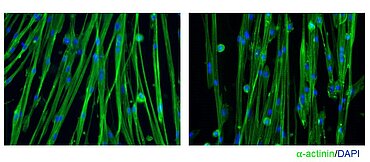Muscle aging: a collaboration to understand the impact of the endoplasmic reticulum
The endoplasmic reticulum is a cellular structure responsible for protein synthesis and trafficking. This structure is maintained by a recycling process that eliminates damaged or useless parts. However, it tends to become dysregulated in muscle cells with advancing age. To better understand the consequences in muscle aging, Minchul Kim and Marcus Rüegg, researcher at the Biozentrum of the University of Basel, have launched a joint research project.

The impact of the autophagy process of the endoplasmic reticulum on muscle aging
The endoplasmic reticulum (ER) is an essential cellular structure for maintaining the integrity of cellular functionality. It also plays a role in muscle contraction. To ensure its integrity, it uses a recycling process: autophagy. To do this, it involves several proteins that coordinate to eliminate dysfunctional parts of the endoplasmic reticulum, which more often referred to as ER-phagy.
What scientists have noted is that with advancing age, the amount of proteins involved in ER-phagy in muscle cells increases. "The objective of our project is to better understand the functional meaning of this increase: does the increase protect the muscle cells, or does it get out of control and damage it," explains Minchul Kim.
To answer this question, the researchers will overexpress or block the production of ER-phagy proteins using adeno-associated viruses injected into mouse models. They will also use immunofluorescence to measure the extent of ER-phagy.
A better understanding of the process would lead to a better understanding of muscle aging and more effective strategies.
A project launched thanks to the support of Eucor, the European Campus
Eucor is an organization that aims to strengthen collaborations between members of the various higher education and research institutions in the Upper Rhine region. Eucor's Seed Money program offers support of €20,000 for one to two years for joint research or training projects between two or more institutions in the region.
